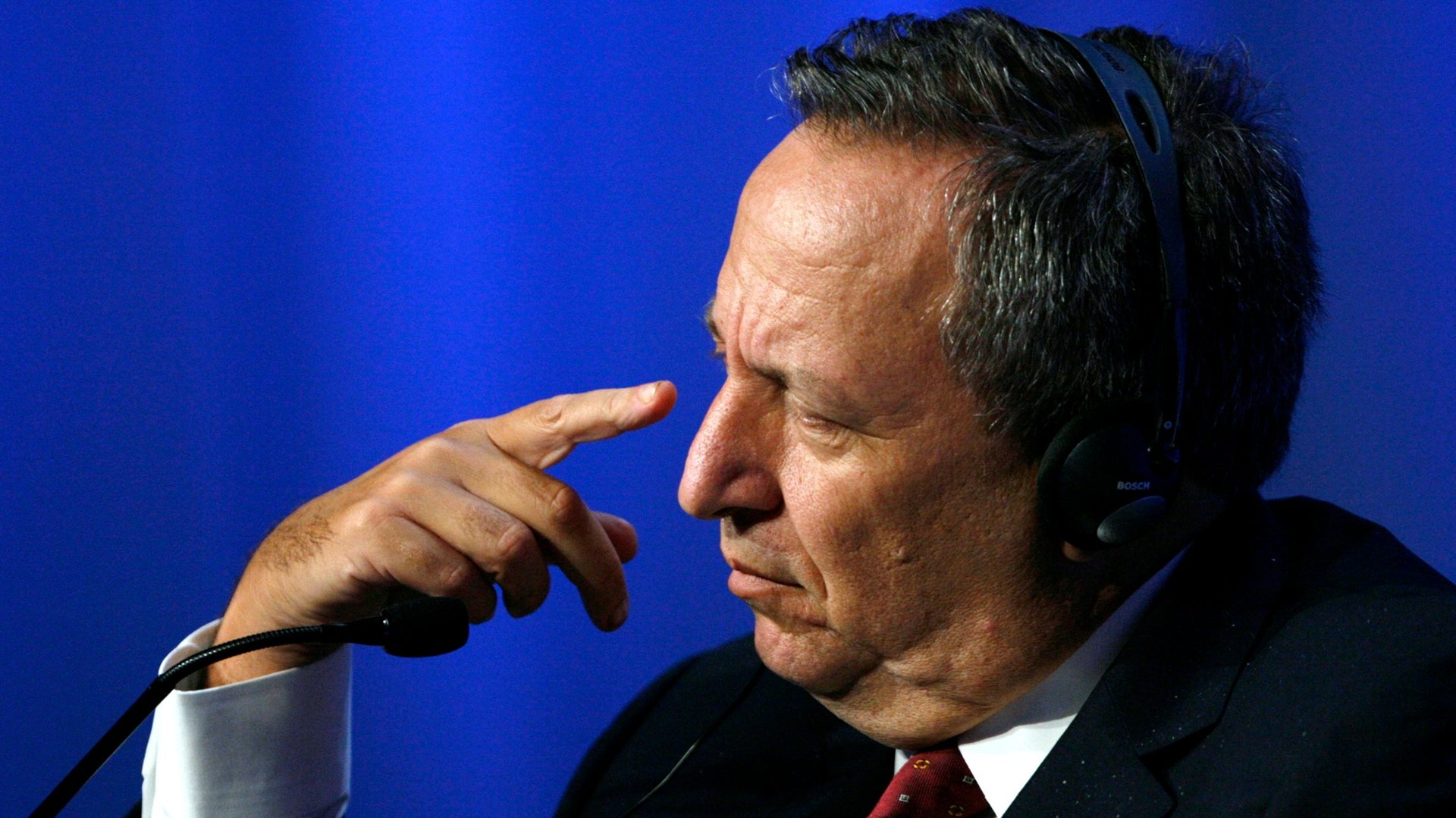The real legacy of Lehman: Larry Summers’s sudden exit from the Fed race
As the financial press struggled over the weekend to add up what the five-year anniversary of the Lehman Brothers bankruptcy meant, former US Treasury secretary Larry Summers helped us all out and took the occasion to definitively withdraw from consideration to be the next Federal Reserve chair.


As the financial press struggled over the weekend to add up what the five-year anniversary of the Lehman Brothers bankruptcy meant, former US Treasury secretary Larry Summers helped us all out and took the occasion to definitively withdraw from consideration to be the next Federal Reserve chair.
We told you why Summers was bound to withdraw last week: growing opposition from within his own party. Last week, three skeptical liberal senators on the banking committee—Elizabeth Warren, Sherrod Brown and Jeff Merkeley—signaled they would not support his candidacy for the most important economic policy position in the country, if not the world. A fourth, Jon Tester, made clear his refusal to vote for Summers on Friday. Those four defections made the nomination a near impossibility.
But these senators weren’t overly concerned with monetary policy itself, the chief occupation of the Fed chair. And while they may have been concerned with Summers’ management style—particularly Warren, who worked with Summers in various capacities over the years—that wasn’t their top problem, either. Their concern was that Summers, who has worked on Wall Street, was too close to the financial industry and too associated with financial deregulation at the end of the Clinton administration.
Even though he was a champion of the Dodd-Frank financial reform bill as Obama’s top economic advisor, that itself was something of a liability to these senators: It was not as tough on the banks as they wanted.
In particular, these senators were the ones most interested in limiting the Fed’s ability to do what Fed chair Ben Bernanke and then-New York Fed President Tim Geithner did after Lehman’s bankruptcy brought modern-day bank runs to the financial system: open up the cash spigots to make big bank (and non-bank) loans to stem the panic. This was also the approach that Summers brought to the Asian financial crisis back in his committee-to-save-the-world days.
While those powers were limited by Dodd-Frank, the Fed can still use its money-printing ability to protect the financial system, and it’s still in charge of some financial regulation. These senators are scarred by the legacy of the AIG bailout and the TARP (Troubled Asset Relief Program) bank rescue, which saved the banks and avoided a depression (both good things) without doing much to help the rest of the economy recover. They don’t want to put the Fed’s toolkit in the hands of someone with Summers’ instincts if they can help it (which is, incidentally, why the much-mooted “dark horse” appointment of Geithner to the post is dark indeed: He’s about as popular with these senators as Summers, and he doesn’t even seem to want the job).
The other two leading options for the job, current Fed vice chair Janet Yellen and former vice chair Donald Kohn, are central bankers to the core. Vitally, and unlike Summers, they aren’t known for their willingness to throw in with the banks—even if, in some future crisis, they may be called upon to do just that.